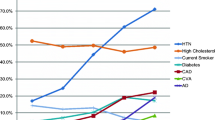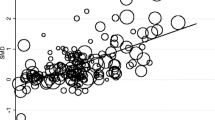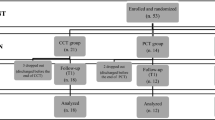Objective. To assess the neuropsychological characteristics of post-stroke cognitive impairments (PSCI) in the acute period of ischemic stroke (IS) and to evaluate the efficacy of Cellex. Materials and methods. Complex neuropsychological testing was performed in 288 patients in the acute period of IS. Cellex was used in addition to basal treatment in 30 patients at a dose of 0.1 mg (1 ml) s.c. for 10 days, with treatment being initiated in the hyperacute period. Results and discussion. Multifunctional PSCI was detected in 87% of the patients in the acute period of IS. Most patients showed impairments to attention, regulatory functions, speech, and memory. More than a third of patients showed multifunctional non-amnestic cognitive impairments. Monofunctional nonamnestic PSCI was encountered in 5.5% of cases. Isolated memory deficit was found in 2% of patients. Most elderly patients displayed PSCI, mostly the mixed variant. Isolated decreases in the rate or regulation of cognitive activity dominated among young and middle-aged patients, with one in four patients showing mixed cognitive impairments. A tendency to greater age was seen in patients with mixed-type PSCI. Analysis of the efficacy of Cellex in the acute period of IS showed that use was linked with improvements in cognitive status and the state of neurodynamic, regulatory, and visuospatial functions. The neurotrophic agent Cellex was effective in correcting PSCI in the acute period of IS.
Similar content being viewed by others
References
C. Gutierrez Perez, M. Savborg, U. Pahlman, et al., “High frequency of cognitive dysfunction before stroke among older people,” Int. J. Geriatr. Psychiatry, 26, 622–629 (2011), doi: https://doi.org/10.1002/gps.2573.
J. C. L. Looi and P. Sachdev, “Differentiation of vascular dementia from AD on neuropsychological tests,” Neurology, 53, 670–678 (1999), doi: https://doi.org/10.1212/wnl.53.4.670.
P. S. Sachdev, X. Chen, H. Brodaty, et al., “The determinants and longitudinal course of post-stroke mild cognitive impairment,” J. Int. Neuropsychol. Soc., 15, 915–923 (2009), doi: https://doi.org/10.1017/S13556 17709990579.
P. B. Gorelick, A. Scuteri, S. E. Black, et al., “Vascular contributions to cognitive impairment and dementia: a statement for healthcare professionals from the American Heart Association/American Stroke Association,” Stroke, 42, No. 9, 2672–2713 (2011), doi: https://doi.org/10.1161/STR.0b013e3182299496.
R. C. Petersen, “Mild cognitive impairment as a diagnostic entity,” J. Int. Med., 256, No. 3, 183–194 (2004), doi: https://doi.org/10.1111/j.1365-2796. 2004.01388.x.
O. S. Levin, Diagnosis and Treatment of Dementia in Clinical Practice: Monograph, MEDpress-Inform, Moscow (2010), 1st ed.
S. J. Cho, K. H. Yu, M. S. Oh, et al., “Post-stroke memory impairment among patients with vascular mild cognitive impairment,” BMC Neurol., 14, 244 (2014), doi: https://doi.org/10.1186/s12883-014-0244-6.
L. Snaphaan and F.-E. de Leeuw, “Post-stroke memory function in nondemented patients: a systematic review on frequency and neuroimaging correlates,” Stroke, 38, 198–203 (2007), doi: https://doi.org/10.1161/01.str.0000251842.34322.8f.
A. A. Kulesh and V. V. Shestakov, “Heterogeneity in cognitive impairments in the acute period of first ischemic hemisphere stroke,” Zh. Nevrol. Psikhiat. (Stroke), 8, No. 8, Iss. 2, 31–34 (2012).
A. A. Kulesh, T. V. Lapaeva, and V. V. Shestakov, “Chronobiological characteristics of stroke and post-stroke cognitive impairments,” Zh. Nevrol. Psikhiat., 114, No. 11, 31–34 (2014).
W. Liu, A. Wong, L. Au, et al., “Influence of amyloid-β on cognitive decline after stroke/transient ischemic attack: three-year longitudinal study,” Stroke, 46, No. 11, 3074–3080 (2015), doi: https://doi.org/10.1161/STROKEAHA.115.010449.
Y. K. Jang, H. Kwon, Y. J. Kim, et al., “Early- vs late-onset subcortical vascular cognitive impairment,” Neurology, 86, No. 6,527–534 (2016), doi: https://doi.org/10.1212/WNL.0000000000002357.
C. R. Jack, Jr, T. M. Therneau, H. J. Wiste, et al., “Transition rates between amyloid and neurodegeneration biomarker states and to dementia: a population-based, longitudinal cohort study,” Lancet Neurol., 15, No. 1, 56–64 (2016), doi: https://doi.org/10.1016/S1474-4422(15)00323-3.
A. V. Kovalenko, and M. N. Safronova, “Effects of Cellex on the recovery of cognitive and speech impairments in the acute period of stroke,” Zh. Nevrol. Psikhiat., 115, No. 1, 40–44 (2015).
Author information
Authors and Affiliations
Corresponding author
Additional information
Translated from Zhurnal Nevrologii i Psikhiatrii imeni S. S. Korsakova, Vol. 116, No. 5, pp. 38–42, May, 2016.
Rights and permissions
About this article
Cite this article
Kulesh, A.A., Shestakov, V.V. Post-Stroke Cognitive Impairments and the Potential for Treatment with Cellex. Neurosci Behav Physi 47, 908–912 (2017). https://doi.org/10.1007/s11055-017-0490-3
Published:
Issue Date:
DOI: https://doi.org/10.1007/s11055-017-0490-3




